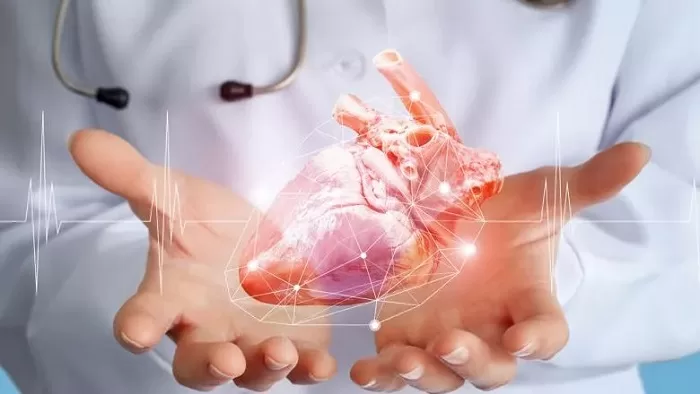Health
Innovative Technology for Better Care: Digital Twin Heart in NHS Patient Monitoring

- Interdisciplinary researchers are creating and testing digital twin heart models for chronically ill NHS patients to improve monitoring and care.
- The £8m CVD-Net project aims to build accurate virtual copies of participants’ hearts using health data, with the potential for personalized predictions and treatment tracking.
A team of interdisciplinary researchers will create and test the first ‘digital twin’ heart models for a group of chronically ill NHS patients, to find out if they provide better monitoring and ultimately better care.
The team, which includes researchers from the University of Nottingham’s School of Mathematics, will work on the £8m CVD-Net project to design and build fully accurate virtual copies – ‘digital twins’ – of participants’ hearts from health data. Data used will include medical records, hospital scans and information from wearable and implanted monitors.
Over time, these will be updated continuously by real-time data from either patient-implanted or wearable medical devices. The research team hope the digital twin hearts will allow them to accurately track changes to each patient’s disease progression and responses to treatment, as well as enabling personalised predictions.
The patients all have pulmonary arterial hypertension (PAH), a life-threatening cardiovascular disease which causes severe breathlessness, heart failure and recurrent hospitalisation. Participants in the study will come from specialist PAH centres including Imperial College Healthcare NHS Trust and Sheffield Teaching Hospitals. The NIHR Imperial Clinical Research Facility, headed by Professor Martin Wilkins, will co-ordinate the study for the Imperial NHS Trust.
The project is led by Professor Steven Niederer at Imperial College London, working with the University of Sheffield, University of Nottingham and the Alan Turing Institute. The interdisciplinary team of engineers, clinicians, computational statisticians and research engineers will collaborate to access the necessary data, build the digital infrastructure and work closely with patients, doctors and stakeholders to evaluate its usability and accuracy.
The Engineering and Physical Sciences Research Council (EPSRC) is supporting the project with funding of £8m. Research at Imperial College Healthcare is also supported by funding from the National Institute for Health Care Research (NIHR) Imperial Biomedical Research Centre.
The digital twin is a concept from engineering and manufacturing, where a real-time virtual counterpart of a physical entity, such as a jet engine or process, is used for monitoring and improvements. Because there is a two-way data interaction between the real entity and virtual replica, the digital twin accurately reflects changes over time. In medicine a digital twin can be a copy of a real patient, an organ, or a biological process, but as yet the technology isn’t widely used.
The Nottingham team will develop statistical methodology to enable digital twins to be created rapidly and at low cost. They will develop machine learning approaches for the calibration of cardiac models in order to personalise model predictions to a specific patient. To be clinically useful, model calibration has to be fast and at minimal cost, ruling out many existing statistical approaches. To achieve this, calibration methods will be created that can learn from experience using the network of digital twins, so that twins of new patients can be created rapidly in the clinical setting.
“We know that sophisticated mathematical models of the heart have the ability to predict patient outcomes and to guide treatment, but only if the models can be personalised to individual patients. At present, this personalisation is too complex and too expensive to be done at scale. This project will allow us to develop the statistical and computational tools needed to personalise models at speed and at reasonable cost, making cardiac digital twins a viable tool for use in a clinical setting.”
Richard Wilkinson, Professor of Statistics at the University of Nottingham
Professor Steven Niederer, Chair in Biomedical Engineering at the National Heart and Lung Institute at Imperial College London, and Co-Director of Digital Twins at the Alan Turing Institute, says: “We want to use this technology to better forecast when patients are likely to feel better or worse, or likely to have a health problem, or when their medication is working and when it isn’t. We hope it will allow us to be more receptive and responsive while also reassuring this critically ill group of patients.”
He added: “We believe this is the first time scientists are investigating and trialling the use of digital twin technology for the NHS for a real patient group, at a reasonable scale, and evaluating whether it will provide better care.”
Ultimately the project will also assess whether the use of digital twin heart models in NHS patient care pathways is feasible, scalable and affordable.
Source: University of Nottingham

























































